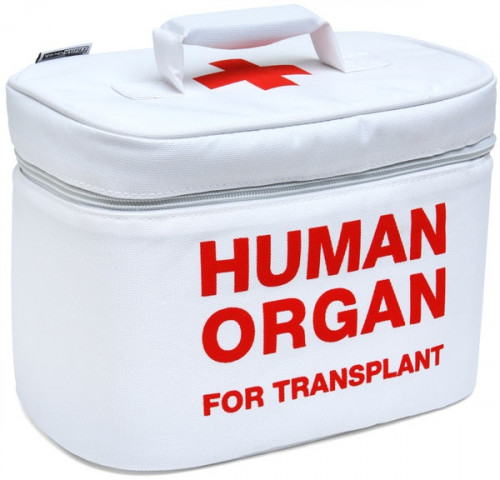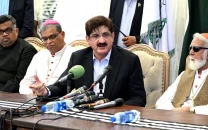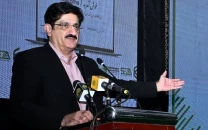Life savers needed: ‘Every 10 minutes, a patient waiting for organ transplant dies’
Organs of one body can save the lives of up to 17 people, says SIUT chief.

Around 750 dialysis are performed everyday in Karachi while only two transplants are conducted daily. PHOTO: laughingsquid.com
The seminar was organised by the CBM Society of Health Managers, a representative body of the MBA Health Management Programme (MHM). There is a need to create awareness among the people of Pakistan and promote the culture of donating organs as one deceased body can save the lives of up to 17 people, said Dr Rizvi.
He termed the organ donors of Pakistan as national heroes. In Pakistan, many factors stop the people from donating their organs after they die. “One of the reasons why Muslims refrain from donating their organs is that Islamic law and its interpretations on the subject are ambiguous. In line with Quranic teachings, he said, most Muslim scholars have declared saving a life is the first priority of people. Thus, organ transplants carried out for this purpose are permitted.”
He also highlighted the lack of professionals trained to carry out transplants and the high rates charged by them. “The best trained professionals are working at expensive hospitals.”
He said that around 750 dialysis are performed everyday in Karachi while only two transplants are conducted daily, which takes it up to approximately 400 every year. “Organ transplantation is the biggest breakthrough of the millennium,” he added.
The advancement in the donation process has grown so much that organs can be taken from a person of any age, said Dr Rizvi. “Stem cell can be used to replace any cells and heal any disease or infirmity,” he added.
The community and society have to take responsibility and interest in the transplantation process if they want their relatives and loved ones to survive for long, said Dr Rizvi.
Around 150,000 organs are needed in Pakistan every year and liver is on the top of the list. He said the problems of organ harvesting are that the person needs to be on a ventilator before he dies or the organ needs to be removed within moments of death, which is a difficult decision for the family.
During the seminar, IoBM rector Talib Karim expressed his decision to donate his organs after he dies. Citing the example of his brother-in-law who died waiting for a liver transplant, he asked the people to donate.
MHM department head Dr Asma Faisal said, “We want people to be aware of the latest advancements in medical science so that more people can get benefit from it.” Talking about the fifth Health Assessment Camp, ‘Empower your Health!’ she said, “People don’t pay attention to minor diseases. We have called many consultants so the students get to know about their illnesses and we have detected three minor cases of thalassemia during the camp.”
Rizvi was pleased to give the lecture to the doctors. “I had heard so much about the IoBM but never had the luck to be in front of highly trained professionals,” he said.
Speaking to the medical students of the MHM, he said, “We have almost finished our work and are still doing what we can but now it is time for you to take the responsibility.”
Correction: An earlier version of this article's headline has been clarified to reflect that every 10 minutes a patient waiting for organ transplant dies.
Published in The Express Tribune, March 18th, 2014.



















COMMENTS
Comments are moderated and generally will be posted if they are on-topic and not abusive.
For more information, please see our Comments FAQ